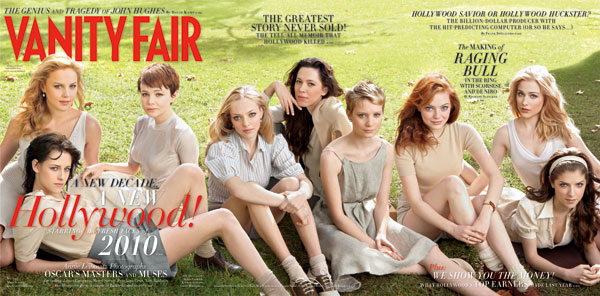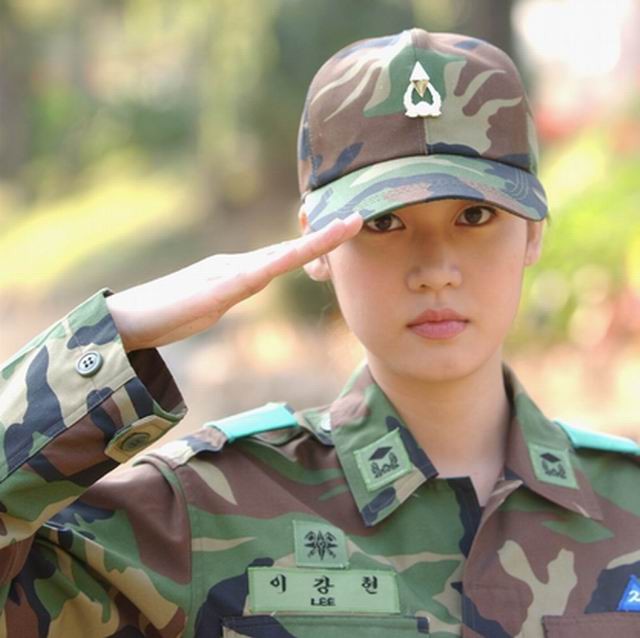Is it just middle-aged Korean men that expect their female subordinates to do menial tasks for them at work, or are younger men different? Does being a foreigner always get you out of this gendered hierarchy? Weigh in on this at Going Places by Diana, who also has many interesting posts about life with her new Korean husband.
Unfortunately, the newlyweds are leaving Korea in August, but she has just started a new blog called Feminist Marriage to compensate. For more on Korean corporate life itself though, this time from the perspective of an atypical gyopo woman, then check out Mental Poo.
2) Korean gender wage gap largest in OECD (again)
Not unrelated to the above, for basic statistics see The Korea Herald, and as a longer analysis in The Korea Times puts it, the basic problem is:
…the extreme imbalance in the “quality of employment.” In other words, men usually take regular, high-income and professional jobs, while women toil in temporary, low-income and non-professional positions. Women account for less than 2 percent of the executives in the nation’s four largest family-controlled conglomerates of Samsung, Hyundai Automotive, LG and SK groups. One can find few ― if any ― female managers in large commercial banks.
To which the Chosun Ilbo adds:
…The low birthrate problem cannot be resolved simply by giving some supportive incentives to women who have children. Women must be allowed to work without worrying about discrimination, and be given equal chances for promotion. With the workforce shrinking as the number of senior citizens rises, one way to deal with the problem is to encourage more women to take jobs.
Korea’s work environment must be changed to allow more women to attain influential positions. The number of female public servants increases each year, but only 7.6 percent of high-ranking positions are held by women. Korea is the only G20 member country where women are virtually nonexistent in top management. As a host country of the G20 Summit, this is something Korea should be ashamed of.
New readers, see this earlier post for more on some of the practical, day-to-day ways in which Korean women are discriminated in the workplace.
3) Likes and dislikes of dating in Korea
Reflections at the I’m no Picasso blog here and here respectively (via Diana).
 ( Source: Vanity Fair )
( Source: Vanity Fair )
4) Diane Farr on all-white Vanity Fair
Daine Farr, an American actress with a Korean husband, laments the lack of diversity on the cover of the March edition of Vanity Fair:
…Here is the real cause for my distress with this Vanity Fair “issue”: I have two daughters, neither of whom is as white as I am. My girls are only 1 year old and a generation away from choosing a profession, yet I already fear the day they consider doing what mommy does. (Nepotism is one of the few perks an actress has to offer her offspring.)
I shudder at the impossibility for my half-Korean women in film — talented, thin, young, beautiful or not — based on Vanity Fair’s cover statement. All the education and experience I could provide my daughters will never make them as lily white as Mary Magdalene. And if auburn hair is the only variation allowed at the next supper of Hollywood’s up-and-coming apostles, then my girls, and a majority of those in America, are still out of luck.
Read the rest in The Chicago Tribune here.
5) 1/3 of Korean adults are overweight
Rather confusing news from The Korea Herald in light of last week’s reports that Koreans were overdosing on diet pills (see #5 here), and as a whole were one of the world’s skinniest populations. Moreover, it also reports that 1 in 7 Seoul school students is overweight, and the Chosun Ilbo adds that Gangwon is the nation’s most obese province, probably because of its high drinking rate and disproportionate number of senior citizens.
Meanwhile, let me pass on the following slightly surreal advertisement for some form of slimming drink I also came across last week; let me know if you’d like a translation and/or want to know more about what on Earth it is selling exactly (via Paranzui):
6) Multicultural divorce rates soaring across nation
Predictable? Read the Joongang Daily for the details, and also Helen Clark at CNN Go hears from Vietnamese women themselves about what they think about marrying Chinese (and Korean) men. Some excerpts:
…It is true that women from poor areas of Vietnam have been known to marry Chinese, Korean or Taiwanese men, but to say Vietnamese women long to marry them would be news in Vietnam as well. Usually foreign “wife buyers” are poorer, older men from rural areas who cannot land a mate at home. And what respectable woman would long for a man that can’t find a woman except by purchasing one?
“We hate Chinese men,” says bank worker P. Ha, 28, on behalf of herself and her friend. But she concedes that marrying into a better life is an opportunity that some find hard to pass up. Seated opposite central Hoan Kiem Lake where many young Vietnamese couples come to walk in circles hand in hand, she explains: “Many Vietnamese girls need money. They have to escape hardship so they get married for money. I feel so sorry for them.”
She relates the same sordid tales of abuse and exploitation that have been circulating in local and foreign media for years, the ones that may force the government to begin regulating the foreign marriage market racket. That will be especially important if, by 2020, China has 24 million excess bachelors, as has been reported, who will be looking overseas to find partners.
And:
…”I think they (Vietnamese women) prefer Korean men to Chinese men, as they’re richer,” says Nguyen Thi Phuong, a 27-year-old English teacher.
Ha and Ngan don’t agree. Neither are much impressed by Korean or Taiwanese men. “They’re the same. We like Japan, Australia or England. They have a lot of knowledge,” says Ha.
 ( Sidelong Glance by Drab Makyo )
( Sidelong Glance by Drab Makyo )
And finally, and only a little dated, Diana at Going Places also discusses:
…a fascinating piece of research presented at the International Conference on Border Control and Empowerment of Immigrant Brides held in September 2007 in Taipei. Marriage Migrant Women in Korea and Attempts to Organize Them was presented by Lee, Inkyoung. She uses case studies and statistical data to highlight the problems faced by women, mostly from rural China and Vietnam, who come to Korea to marry with the promise of the wealth of a more powerful country. Unfortunately, the reality of such arranged marriages rarely live up to the promise of “The Korean Dream.”
7) What is a housewife’s labor worth?
10,172 won per hour, according to the Chosun Ilbo.
8) Violence, Rape and Hazing in Elementary Schools
As usual, Matt at Gusts of Popular Feeling provides a comprehensive report; and very worrying to me personally, with 2 daughters that will be starting school in a few years.
 9) Male idol sexually harassed by men
9) Male idol sexually harassed by men
Garam, a member of a new teenage boy band called D-NA (대국남아), has complained of being sexually harassed by older men.
10) Do U-KISS (유키스) dress like women?
I’ll let the Filipino DJ at the center of the latest storm in K-pop speak for himself:
…Since I posted these comments [on the right], I have received thousands of demands for a public apology and equally large amounts of death threats.
Yeah, right. Like what the fuck are you 12 year olds going to do?
Listen kids, what I wrote was my opinion meant to critique their fashion sense. I felt it’s in the same line as how critics dissect the Best and Worst Dressed at awards night. Look at their photo and be realistic, I am not off on my assessment–those dudes dress and look like chicks.
For the rest, and thousands of comments, see here and here.
11) Japanese rape fantasy videos under fire
From the Huffington Post, which includes a video report from CNN:
…In one such game the object is to find and rape the woman who fired the player from his imaginary job. In another, called “Rapelay,” the player stalks a young woman, her mother and her sister on a train, all while being able to grope them with a click of your mouse. They also include much more graphic, interactive scenes that cannot be shown.
Recall that manga that depicts sex with minors is also being banned by the Tokyo Municipal Government; see #13 here.
12) Sexism in Mandarin
With 70% of Korean being derived from Chinese, Chinayouren has also made me interested in unearthing all the sexist expressions in Korean with this post:
In this week’s language post I want to examine the gender implications in the Chinese written and spoken language, and the reactions of the Chinese women to the many discriminatory expressions in use today…
…The old Confucian tradition in China is hardly an example of gender equality, and given the intimate relation between Confucian scholars and the Chinese script over the millennia, it is only natural that the characters should carry some important bias. As we will see, the spoken language is not any better, reflecting a society where the woman had a very limited role even among the masses.
 ( Source: wit’s )
( Source: wit’s )
13) Affirmative action for conscripted men still considered unconstitutional
From The Korea Herald:
…Among the incentives that are being considered to reward those who complete their mandatory military service is awarding bonus points when they apply for jobs. This system of reward was struck down as unconstitutional in 1999 and has been a point of contention ever since. The Military Manpower Administration claims that draft dodgers have been resorting to increasingly sophisticated methods to avoid the military service ever since the bonus points system was scrapped. It argues that reinstating the bonus system would be an incentive to serve. However, women`s rights advocacy groups counter that there is no basis for reviving the system since it has already been ruled unconstitutional. Furthermore, such a system discriminates against women, they argue. Indeed, better ways must be found to reward those who serve the nation than through reintroducing a system that discriminates against women…
Not that I don’t consider mandatory military service an impediment to men’s education and career, but as Ask a Korean! points out, and I further elaborate on in this series:
…military experience becomes fuel for sexism. Remember that Korean men believe that they made an incredible sacrifice by serving in the military. (And to some extent, that is true.) So whenever women demand more equal rights, a standard, pithy answer from men is: “Have you been to the military?” For example, a few years ago Korean government abolished the bonus points given to those who served in the military in hiring government workers, based on the reason that it is unfair to women. The decision nearly caused a riot, and is still a very popular fodder for anti-feminists in Korea…
Consequently, I’d rather have the necessity of the whole system of conscription itself re-examined, or – rather unlikely – women also required to serve, well before men are again legally rewarded for serving.
14) Stats on prostitution
In light of incidents like this, I’d be very wary of using The Korea Times as an authoritative source on anything, but for what it’s worth here is a notable statistic about Korean prostitution in world context (via: Korean Rum Diary):
The Korea Times article quoted is here. With no offense to the author Mathias Specht, I would need to take a very close look at the methodologies used and definitions adopted before accepting the following:
…While there is not too much official data to go by, numbers released by the Institute of Criminology state that prostitution constituted 4.1 percent of the country’s GDP in 2003. To put this in perspective, the forestry, fishing and agricultural sectors together generated only 4.4 percent. The study further revealed that one in five men in South Korea buy sex more than four times a month and 4.1 percent of women in their 20s make a living as prostitutes.
Estimates by the Korean Feminist Association have put the last figure even higher with a total of 1.2 million women working in the sex industry. A quick look at the country’s demographics renders this figure even more remarkable. At the time of the estimate, roughly 17 million women between 15 and 64 were living in Korea. Let’s assume that women between 18 and 35 make up the group most likely to be employed in this line of work ― a total of 6.6 million women. This would mean that one in six women in Korea in the relevant age group work in the sex industry…
Filed under: Korean Gender Reader





Recent comments